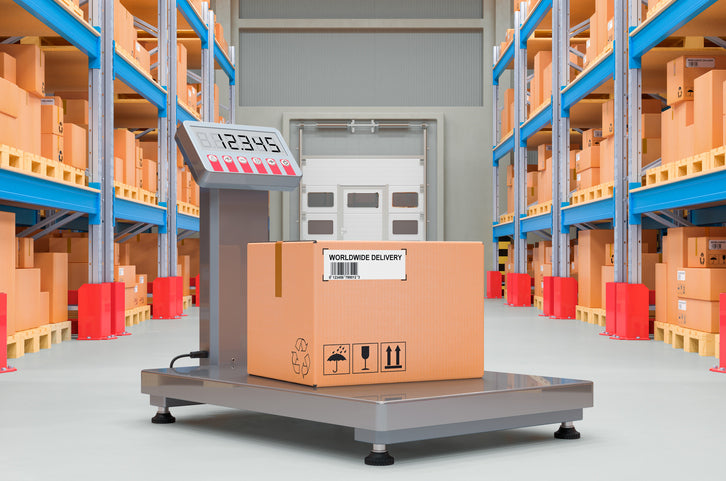Weighing Scale Calibration Services
-

Quick Turnaround Guaranteed
We understand that time is critical. That’s why we prioritise fast, efficient service without compromising on quality or accuracy. Whether on-site or in-house, our streamlined processes ensure minimal downtime and maximum reliability—every time.
-

On-site Calibration Service
Our expert technicians come to you, providing convenient and efficient calibration at your location. Minimise downtime and maintain compliance with our fully equipped mobile calibration units—delivering accuracy, reliability, and quick turnaround on-site.
-

NATA Accredited
Our calibration services are NATA accredited to ISO/IEC 17025, ensuring the highest standards of accuracy, reliability, and compliance. Trust in certified expertise backed by over 33 years of industry experience.
Since 1992 NATA Accredited (ISO/IEC 17025) – includes compliance with AS 1379.
-

24-Hour Breakdown Service
We offer round-the-clock support to minimise downtime and keep your operations running. Our 24-hour breakdown service ensures fast response and expert assistance whenever you need it most.

WeighingScale Calibration Services
Independent Scale Service (ISS) is a NATA ISO/IEC 17025 accredited calibration provider with over 30 years of experience in calibrating weighing scales and analytical balances across diverse industries. Our calibration services are not limited to our in-house facility—we also offer on-site calibration using our mobile calibration systems for maximum convenience.
🔗 View our NATA Scope of Accreditation Click here
Calibration Capabilities
NATA ISO/IEC 17025 Accredited Calibration:
From 1 kg to 300 kg
- Traceable Calibration Services:
From 1 mg to 1,000 kg
Our Current Clients
-
CompleteWeighing System Support & Repairs
ISS also provides complete repair and support services for batching plants and industrial weighing systems, including:
- Electrical & mechanical fault diagnostics
- Load cell services – supply, testing, replacement, cabling, and calibration
- Supply and installation of junction boxes, surge arrestors, and summing circuits
- Weighing indicator supply, installation, programming, and calibration
-
SpareParts & Components – Ready Stock
To reduce downtime and ensure quick service, we keep a wide range of critical components and leading brand parts in stock.
Brands We Support:
PT Global, Rinstrum, Anyload, Kelba, A&DCommonly Stocked Items:
- Load cells
- Weighing indicators
- Junction boxes
- Threaded rods & nuts
- Moisture balances
- General-purpose weighing scales
Typesof Weighing Scales We Calibrate, Repair, and Supply
-
PlatformScales
- Description: Large, floor-mounted flat surface for heavy-duty use.
- Applications: Warehouses, manufacturing, logistics, drums, and bulk containers.
-
Bench Scales
- Description: Compact, table-mounted weighing scales.
- Applications: Retail, packaging, and laboratory environments.
-
Analytical& Precision Balances
- Description: High-precision instruments with fine readability (down to 0.0001g).
- Applications: Pharmaceuticals, research, and chemical analysis.
-
Counting Scales
- Description: Designed for counting items based on unit weight.
- Applications: Inventory control, parts counting, and packaging operations.
-
Baby& Medical Scales
- Description: Specialized medical-grade scales with safety features.
- Applications: Hospitals, veterinary clinics, and health centres.
-
Moisture Analyzers
- Description: Scales integrated with heaters to measure moisture content.
- Applications: Food processing, agriculture, and pharmaceutical quality control.
ISS is your trusted partner for all weighing equipment needs – from calibration and servicing to repair and supply – across a wide range of industries and applications.
Faq
Ensuring Accuracy and Reliability in Measurements
Weighing scale calibration is a critical process that ensures the accuracy and reliability of weight-based measurements in various industries, including healthcare, manufacturing, retail, and scientific research. Proper calibration enhances the performance of weighing scales and guarantees compliance with regulatory standards.
What is Weighing Scale Calibration?
Calibration is the process of comparing the output of a weighing scale against a known standard or reference weight to ascertain its accuracy. This procedure identifies discrepancies in measurements and allows adjustments to bring the scale back to its intended precision. Weighing scale calibration is especially vital in environments where exact weight measurements are critical—for instance, pharmaceutical laboratories or commercial transactions.
Why is Calibration Necessary?
The need for calibration stems from several factors:
• Wear and Tear: Over time, mechanical parts and sensors in weighing scales may degrade, leading to inaccuracies.
• Environmental Effects: Temperature, humidity, and vibrations can affect the performance of weighing scales.
• Compliance: Legal standards often mandate periodic calibration to ensure fair trade and accurate measurements.
• Safety: In industries like aviation or construction, precise weight measurements are essential for safety protocols.
Types of Weighing Scales
Different types of weighing scales require varying calibration methods. Common types include:
• Analog Scales: These use mechanical parts such as springs. Calibration involves physical adjustments to internal mechanisms.
• Digital Scales: These rely on electronic sensors. Calibration often requires software adjustments or reconfigurations.
• Industrial Scales: Designed for heavy loads, they require robust calibration protocols to meet stringent accuracy requirements.
• Precision Scales: Used in laboratories, they demand highly sensitive calibration procedures due to their fine measurement capabilities.
The Calibration Process
A typical calibration process involves several steps:
Preparation
Before calibration begins, ensure the scale is clean and free of debris. Place it on a stable, level surface to avoid external influences like uneven flooring.
Using Reference Weights
Calibration is carried out using certified reference weights, which are weights of known mass. These weights must adhere to international standards ISO 17025
Adjustments
Technicians compare the scale's readings with the reference weights. If discrepancies are found, adjustments are made either manually (for mechanical scales) or digitally (for electronic scales).
Testing
After adjustments, the scale is retested to ensure it provides consistent and accurate results. Multiple weights across the scale's range are used for verification.
Frequency of Calibration
The frequency of calibration depends on the scale's usage, environment, and industry requirements. Scales used heavily or in fluctuating environmental conditions may need more frequent calibration. Common guidelines include:
• Annual Calibration: Suitable for scales in stable environments or low-use settings.
• Quarterly Calibration: Recommended for scales used frequently or in critical operations.
• Upon Installation: Newly installed scales should be calibrated before use to ensure initial accuracy.
Benefits of Regular Calibration
Regular calibration offers numerous advantages:
• Accuracy and Reliability: Ensures consistent measurements, vital for quality control.• Compliance: Meets regulatory standards for fair trade and industry practices.
• Cost Reduction: Prevents financial losses due to incorrect measurements.
• Customer Trust: Guarantees transparency in commercial transactions.
• Safety Assurance: Promotes safety in industries where weight measurements are critical.
Challenges in Calibration
Despite its importance, weighing scale calibration can face challenges:
• Access to Certified Reference Weights: Ensuring the availability of weights that meet international standards can be difficult.
• Environmental Constraints: Factors like temperature fluctuations or vibrations can interfere with the calibration process.
• Cost of Calibration Services: Hiring professional calibration technicians might be costly for small businesses.
• Technological Complexity: Advanced digital scales often require specialized software for calibration.
Choosing a Calibration Service
Professional calibration services are essential for ensuring the quality and reliability of weighing scales. When selecting a service provider, consider the following:
• Accreditation: Ensure the provider is accredited by recognized agencies like ISO or national metrology institutes.
• Experience: Look for providers with a proven track record in your specific industry.
• Turnaround Time: Choose providers who can calibrate within your timeframe to minimize downtime.
• Cost: Compare pricing and ensure it matches your budget without compromising quality.
Conclusion
Weighing scale calibration is a cornerstone of accurate weight measurement and operational efficiency. By maintaining regular calibration schedules, businesses can ensure compliance, build trust, and optimize performance. Whether through professional services or in-house procedures, calibration safeguards the integrity of measurements, making it indispensable across industries.

Get in touch now
Connect With Us
Stay connected with us for the latest updates, expert support, and tailored solutions to meet your needs.
























